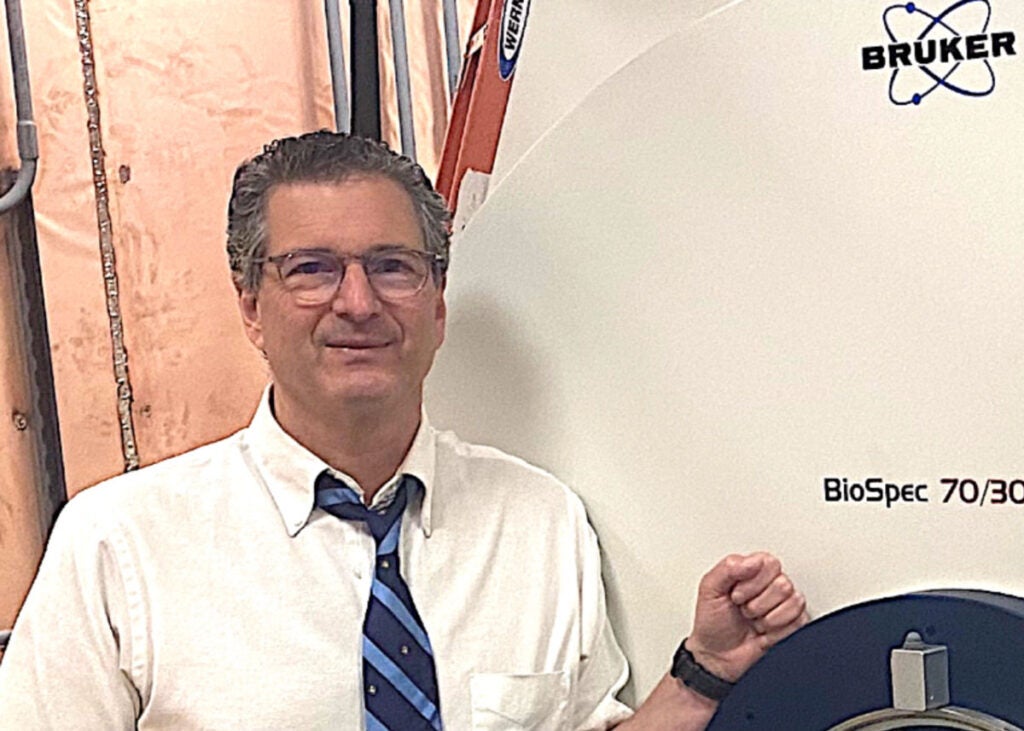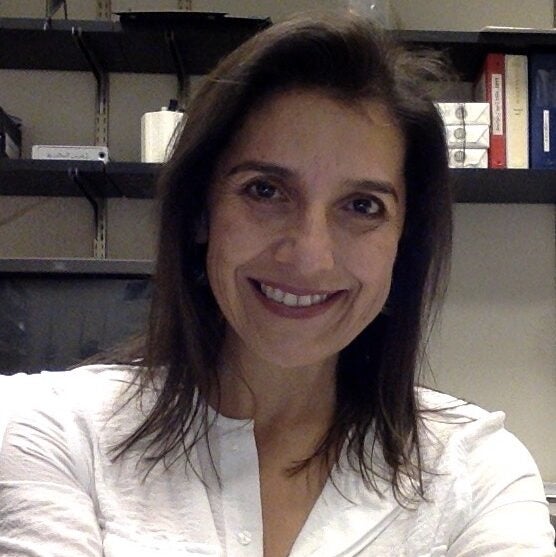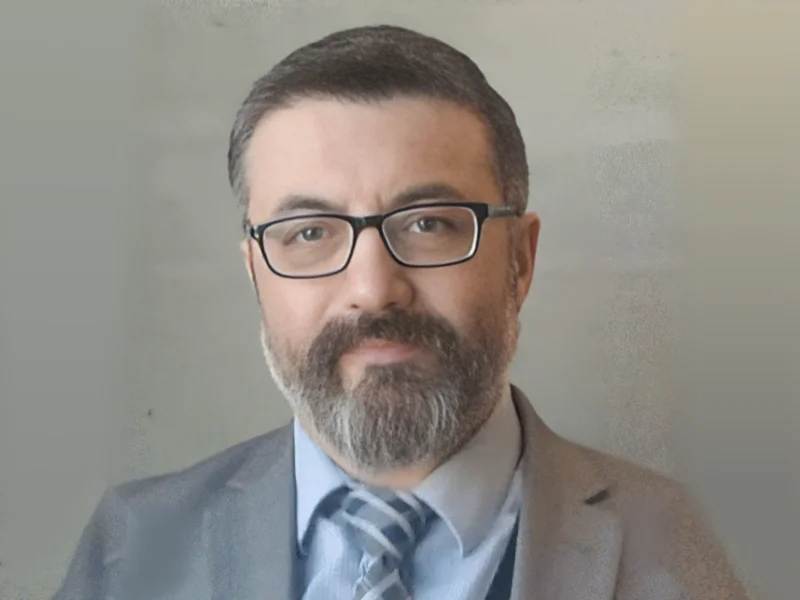Members

Christopher Albanese, PhD
Executive Director, CTI
Professor, Department of Oncology, Radiology
William and Karen Sonneborn Chair in Interdisciplinary Collaboration
Co-Director, Animal Model Preclinical Imaging Lab
albanese@georgetown.edu
Preclinical Imaging Research Lab
Dr. Albanese is a Professor of Oncology and Radiology and the director of the Georgetown-Lombardi Animal Models Shared Resource (AMSR). His extensive background in molecular biology and in animal modeling and imaging, has resulted in over 190 per-reviewed publications to date. https://www.ncbi.nlm.nih.gov/myncbi/christopher.albanese.1/bibliography/public/. As both the founder and director of the Georgetown-Lombardi Preclinical Imaging Research Laboratory (PIRL) and the Center for Translational Imaging (CTI), Dr. Albanese has developed a comprehensive imaging program that spans basic, molecular, genetic and translational research with multiple platforms, including MRI and ultrasound, for in vivo modeling. As part of his basic sciences program, his laboratory and the PIRL/CTI, are testing novel and emerging contrast agents, such as manganese and fluorine -based compounds as well as novel fluorescent peptides. In addition, Dr. Albanese has over 30 years of experience in exploring the roles of oncogenes, tumor suppressors and cell cycle regulatory proteins in the initiation and progression of cancer in vitro and in vivo. Further, Dr. Albanese routinely provides guidance and perform imaging analyses on numerous preclinical models of human diseases, including; TBI, stroke, epilepsy, spinal cord injury and repair, as well as childhood cancers, most adult cancers, and kidney, liver and heart disease. Further he was the first to publish on the effects of chemotherapy on the brain in the context of the Alzheimer’s risk and apolipoprotein E3 vs E4 allelotype using voxel-based morphometry. His overarching goal, and the central mission of the laboratory and the PIRL/CTI, is to continue to enable the development of bedside to bench to bedside imaging programs using animal models as the nexus.

Olga Rodriguez, MD, PhD
Co-Director and co-Founder, CTI
Associate Professor, Department of Oncology
Co-Director and co-Founder, Preclinical Imaging Research Lab
Olga.Rodriguez@georgetown.edu
Preclinical Imaging Research Lab
Dr. Olga Rodriguez, Associate Professor in the Department of Oncology, is the co-founder and co-director of both the Georgetown-Lombardi Preclinical Imaging Research Laboratory (PIRL) and the Center for Translational Imaging. Dr. Rodriguez has an extensive background in clinical medicine, molecular biology, animal modeling and preclinical imaging, work that has resulted in over fifty peer-reviewed publications to date:
https://pubmed.ncbi.nlm.nih.gov/collections/59744881/?sort=pubdate .
Dr. Rodriguez teaches in both the Department of Oncology and the School of Medicine and runs comprehensive research programs in molecular and cell biology and, with over 15 years of experience in MRI and image post-processing, is instrumental in the translational research performed at Georgetown. Dr. Rodriguez is involved in several collaborative projects that include MR contrast agent development, applications of MRI in traumatic brain and spinal cord injury, adult and childhood cancers, stroke, epilepsy, as well as kidney and liver disease. One of Dr. Rodriguez’s current interests is to define the impact of chemotherapy on brain structure and function in the intersection of aging, sex and the genetic risk of the E4 allele. Dr. Rodriguez is a leader in enhancing equity, inclusion and diversity at Georgetown in two fronts: 1) as a member of the Racial Justice Committee for Change which seeks, among other things, to make the School of Medicine curriculum more representative of the US population and, 2) as the director of the Medical Spanish Initiative, which trains medical students to communicate effectively with their Spanish-speaking patients in a culturally-sensitive manner.

Stanley Fricke, PhD
Director of Medical Physics, Engineering and Education Outreach, CTI
Professor, Department of Radiology
Director of Medical Physics
stf2@georgetown.edu
Dr. Fricke first became interested in Medical Physics in 1986. Today he directs the Medical Physics program at Georgetown University. As a professor in Radiology he teaches Diagnostic Imaging, including the nuts and bolts of radiological equipment, image formation and user techniques available today. His primary research interest revolves around research and development of High-Performance Magnetic Resonance Imaging devices that span the resolution spectrum from single nuclei to cells, tissues, preclinical and human. He holds US and world patents in Magnetic Resonance Imaging, Manganese contrast agents and X-ray tube technologies. His best day is when students and researchers are excited about science. Fun fact: He is the Scouting BSA, National Capitol Area, Potomac District STEM Chair and a sponsor of the “Friends and Family of the NIH STEM Scouts Laboratory” located in Bethesda, Maryland.

Sarah L. Stoll, PhD
Professor, Department of Chemistry
William and Karen Sonneborn Chair in Interdisciplinary Collaboration
sls55@georgetown.edu
Stoll lab
Sarah Stoll received her BA from Smith College and PhD from U. C. Berkeley. She has been at Georgetown University since 2002. She has served as co-Director of the program, Science in the Public Interest, and an NSF rotator in the Chemistry Division (2015-2016) and senior scientist at the National Institute of Standards and Technology in NCNR (2011). She has received an NSF-CAREER award, Fulbright Fellowship to research in Helsinki Finland, and in 2017 was an Erasmus Lecturer in Vilnius Lithuania.

Edward Van Keuren, PhD
Professor, Department of Physics
William and Karen Sonneborn Chair in Interdisciplinary Collaboration
edward.van.keuren@georgetown.edu
Van Keuren Lab
Edward Van Keuren is a Professor in the Department of Physics at Georgetown University. After receiving a Ph.D. in Physics from Carnegie Mellon University in 1990, he worked for BASF AG in both Germany and Japan, and also spent several years at the Japanese National Institute of Materials and Chemical Research. He joined the faculty of Georgetown in 1999. His research involves the synthesis, characterization and application of multicomponent micro- and nano-materials. He has helped develop a wide range of novel materials, including endohedral fullerenes for organic solar cells, charge transfer cocrystals for organic electronic devices, and nanoparticle contrast agents for MRI. He has also developed a number of novel characterization methods, including fiber optic diffusing wave spectroscopy, wide-angle beam propagation methods, and a three-dimensional thermal imaging technique. During his over twenty years at Georgetown he has mentored thirteen PhD recipients, two MS students and over a hundred undergraduates, and has published over 70 peer-reviewed publications and received 5 issued patents.

Eric Glasgow, PhD
Asst. Professor, Department of Oncology, Lombardi Comprehensive Cancer Center
Director of Zebrafish Shared Resource
eg239@georgetown.edu
Glasgow Lab
Dr. Glasgow is a Research Assistant Professor of Oncology and Director of the Zebrafish shared Resource at Georgetown University Medical Center. Broadly trained in molecular, cellular, and developmental biology, genetics, and neuroscience, Dr. Glasgow has utilized zebrafish as an experimental model for over thirty years. Dr. Glasgow received a PhD from Stony Brook University, NY, and post-doctoral training at NIH in Dr. Igor Dawid’s Laboratory of Molecular Genetics, NICHD and in Dr. Harold Gainer’s Laboratory of Neurochemistry at the NINDS. At Georgetown University, Dr. Glasgow developed the Georgetown-Lombardi Zebrafish Shared Resource, the first in the world to offer full-service access to the zebrafish model.
Dr. Glasgow and his team have collaborated with over fifty labs at Georgetown and globally,
with projects entailing analyses of phenotypes in virtually every organ and structure of the
developing embryo, resulting from genetic or pharmacologic manipulations. Dr. Glasgow has
published over 80 manuscripts in high impact journals and trained over two hundred students at
all levels from high school to postdoctoral fellows. For an overview of why many scientists,
including Dr Glasgow, use zebrafish for biomedical research, watch this 10-min award-winning
documentary, “Zebrafish: Practically People”, at www.zebrafishfilm.org.

Alejandro Villagra, PhD
Associate Professor, Department of Oncology, Lombardi Comprehensive Cancer Center alejandro.villagra@georgetown.edu
Dr. Villagra’s primary areas of expertise are tumor immunology and epigenetics. During his scientific career, he has explored the role of epigenetic modifiers in the modulation of signaling pathways controlling the phenotype and function of immune and cancer cells. The study models in his Lab have been diverse and have included multiple solid tumors and hematological malignancies. Overall, his current research focuses on identifying and characterizing the immunomodulatory roles of HDACs and other epigenetic modifiers in myeloid and lymphoid cells. A particular emphasis in his research is to discover and evaluate new selective small-molecule inhibitors able to selectively control the activity of epigenetic modifiers in immune cells with the final goal of improving antitumor immune responses. Other research interests in his group involve the identification of drugable targets to modulate inflammation, wound healing, and metabolic activity in immune cells. His experimental approaches have essential translational components, including syngeneic animal and patient-derived xenograft models, which allow us to extend our investigations into the clinical area. These particular characteristics enable his research to maintain continuous feedback and keep goals focused on the relevant biomedical aspects of our scientific endeavors. His group has received funding from diverse sources, including government (NIH, NSF), foundations (MRF), and private industry (multiple pharmaceuticals).
Associate Members
Moshe Levi, MD, Professor, Biochemistry and Molecular & Cellular Biology
ml1742@georgetown.edu
Suman Ranjit, PhD, Asst. Professor, Biochemistry and Molecular & Cellular Biology
Suman.Ranjit@georgetown.edu
Ashley Vanmeter, PhD, Assoc. Professor, Neurology
Ashley.VanMeter@georgetown.edu
Blythe Shepard, PhD, Asst. Professor, Human Science
Blythe Shepard@georgetown.edu
Yichien Lee, PhD, MR Manager
yl285@georgetown.edu
Kyle Korolowicz, Ultrasonographer
kek89@georgetown.edu
Orelle Bulgin, PhD Student, Van Keuren Lab
okb9@georgetown.edu
Carina Vazquez-Nunez, PhD Student, Van Keuren Lab
@georgetown.edu
Maya Evans, REU student, Van Keuren Lab
evans26m@mtholyoke.edu
Madelyn Kausch (C’26), Albanese lab
mrk143@georgetown.edu
Mirko Hrovat, MIRTECH
Irving Weinberg, Weinberg Medical Physics
Alumni
Julie Mertzman (PhD 2009)
Michele Pablico-Lansigan (PhD 2011)
Maki Nishida (PhD 2011)
Joe York (PhD 2012)
Chanon Pornrungroj (visiting PhD student, 2016)
Billy Hickling (PhD 2016)
Xiaowan Zheng (PhD 2017)
Vidumin Dahanayake (PhD 2018)
Trevor Lyons (PhD 2022)
Alysia Bone (B.S. 2008)
Zachary Certa (B.S. 2011)
Marian Ackun-Farmmer (REU 2011)
Emily Japp (B.A. 2012)
Roxanne Accola (REU 2013)
George Ma (HS student, 2016-17)
Brendan Kerwin (BA 2017)
Alex Peterson (BA 2017)
Patrick Stocklin (B.S. 2017)
Evelyn Truong (BA 2018)
David Lah (BA 2018)
Nelly Lin-Schweitzer (REU 2021)
Darren Danaie (B.S. 2021)
Alissa Keegan (B.S. 2023)
Yuri Chung (B.S. 2024)
Sophie Taylor (B.S. 2024)
Winifred Asigri (B.S. 2025)